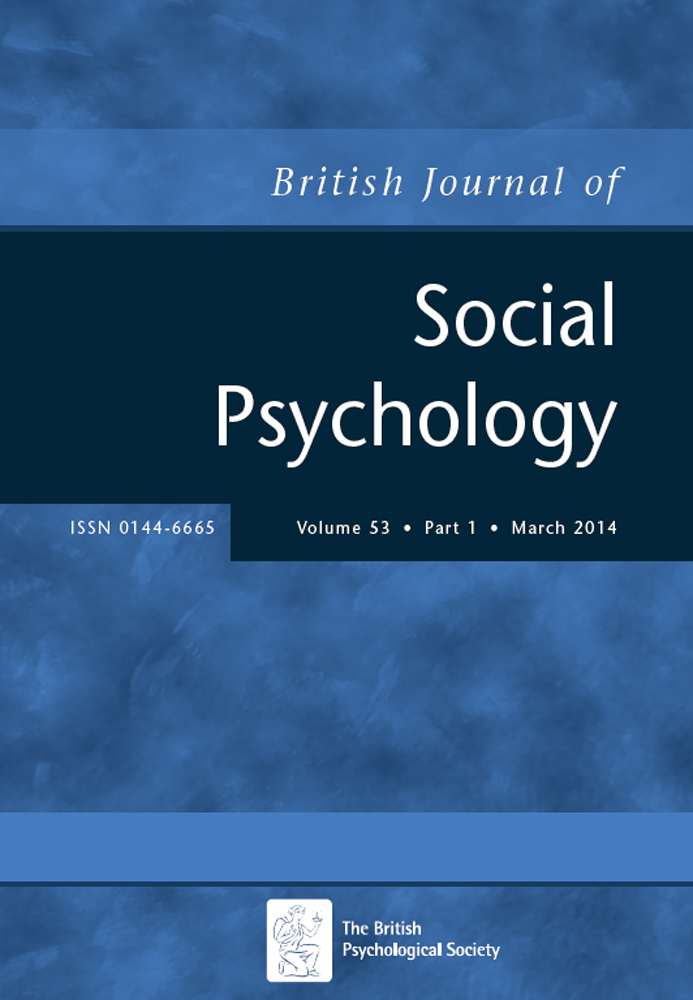Avoidance coping explains the link between narcissism and counternormative tendencies.
IF 3.2
2区 心理学
Q1 PSYCHOLOGY, SOCIAL
引用次数: 0
Abstract
Previous research linked counternormative tendencies (e.g., conspiracy beliefs, cyberbullying, and catfishing) to narcissism-a personality trait characterized by difficulties in experiencing psychological threats. We argue that avoidance coping with stress favours attitudes and behaviours that allow for deflecting from stressful events and releasing one's stress at the expense of others. Thus, we hypothesized that avoidance coping might explain why narcissism favours counternormative tendencies. We conducted four studies (total N = 2643) in the United States and Poland to examine avoidance coping as a mediator of the relationship between narcissism and counternormative tendencies: conspiracy beliefs (Studies 1-4), willingness to conspire (Studies 2-4), cyberbullying (Studies 3-4) and catfishing (Study 4). All studies found a consistent positive indirect relationship between various forms of narcissism and counternormative tendencies via avoidance coping. These findings suggest that counternormative tendencies might reflect using maladaptive coping strategies.回避应对法解释了自恋与反传统倾向之间的联系。
以往的研究将反传统倾向(如阴谋论、网络欺凌和猫扑)与自恋(一种以难以体验心理威胁为特征的人格特质)联系起来。我们认为,对压力的回避式应对倾向于以牺牲他人利益为代价来转移压力事件和释放自身压力的态度和行为。因此,我们假设,回避应对可以解释为什么自恋倾向于反传统倾向。我们在美国和波兰进行了四项研究(总人数 = 2643 人),以考察回避应对作为自恋与反传统倾向之间关系的中介的作用:阴谋信念(研究 1-4)、阴谋意愿(研究 2-4)、网络欺凌(研究 3-4)和捕猫(研究 4)。所有研究都发现,各种形式的自恋与通过逃避应对的反传统倾向之间存在一致的正向间接关系。这些研究结果表明,反传统倾向可能反映了使用适应不良的应对策略。
本文章由计算机程序翻译,如有差异,请以英文原文为准。
求助全文
约1分钟内获得全文
求助全文
来源期刊

British Journal of Social Psychology
PSYCHOLOGY, SOCIAL-
CiteScore
9.50
自引率
7.40%
发文量
85
期刊介绍:
The British Journal of Social Psychology publishes work from scholars based in all parts of the world, and manuscripts that present data on a wide range of populations inside and outside the UK. It publishes original papers in all areas of social psychology including: • social cognition • attitudes • group processes • social influence • intergroup relations • self and identity • nonverbal communication • social psychological aspects of personality, affect and emotion • language and discourse Submissions addressing these topics from a variety of approaches and methods, both quantitative and qualitative are welcomed. We publish papers of the following kinds: • empirical papers that address theoretical issues; • theoretical papers, including analyses of existing social psychological theories and presentations of theoretical innovations, extensions, or integrations; • review papers that provide an evaluation of work within a given area of social psychology and that present proposals for further research in that area; • methodological papers concerning issues that are particularly relevant to a wide range of social psychologists; • an invited agenda article as the first article in the first part of every volume. The editorial team aims to handle papers as efficiently as possible. In 2016, papers were triaged within less than a week, and the average turnaround time from receipt of the manuscript to first decision sent back to the authors was 47 days.
 求助内容:
求助内容: 应助结果提醒方式:
应助结果提醒方式:


